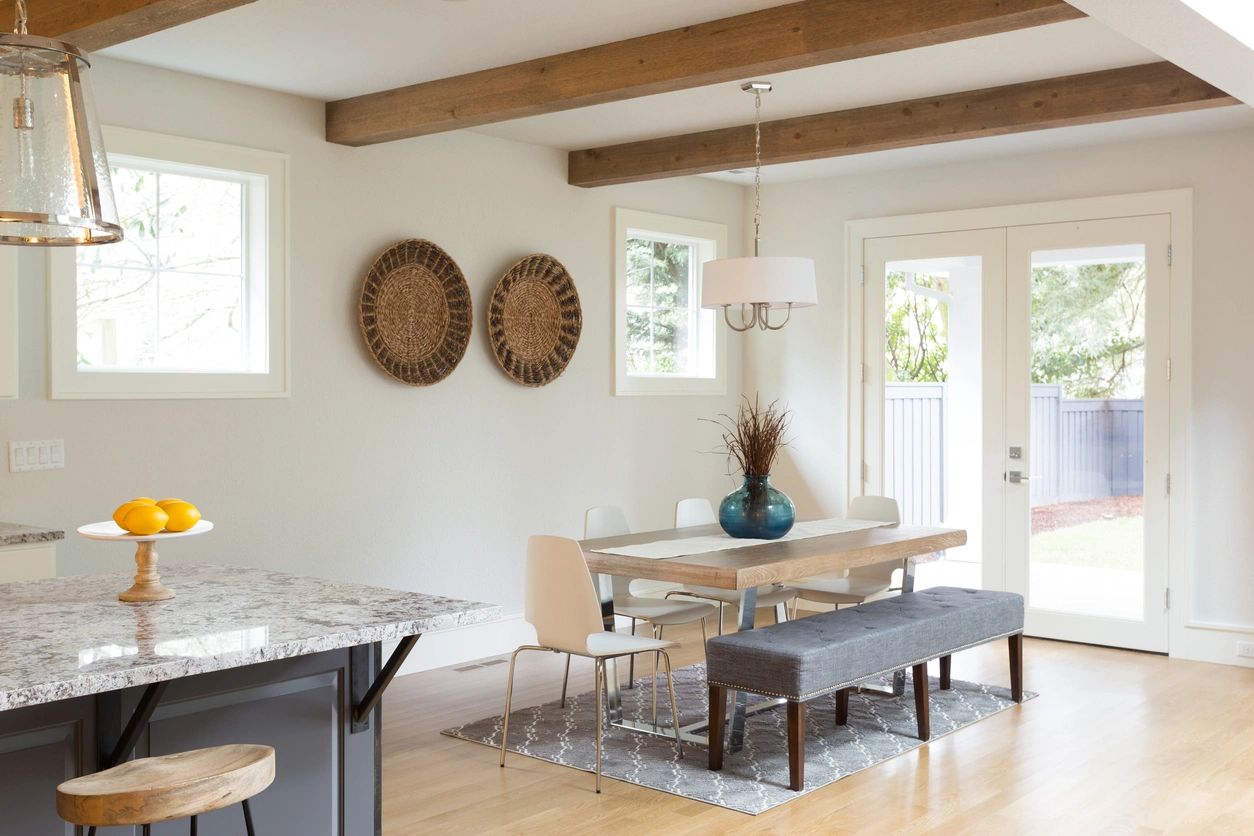Old or damaged windows—yeah, they can make your house drafty, uncomfortable, and way more expensive to heat or cool. Honestly, most of us just live with those chilly drafts or tiny cracks, but that’s basically tossing money out the window every month. Swapping out your windows for modern, energy-efficient ones? That can take a real bite out of utility bills and just make your place feel better overall.
Is window replacement really worth it? Plenty of homeowners hesitate. But new windows can actually boost curb appeal, cut down on outside noise, and might even nudge your home’s value up a bit. Knowing the perks—and what’s involved—makes it easier to decide what’s right for your place.
Understanding Window Replacements
Window replacements come in all sorts of styles, and the benefits are honestly worth a look. Picking the right one is a mix of thinking about frame materials, energy savings, and whether the window looks like it belongs on your house.
Types of Replacement Windows
There are basically two main kinds: full-frame and insert (or pocket) windows. Full-frame means ripping out the whole window—frame and all. That’s the way to go if your frames are shot or starting to rot.
Insert windows just swap out the sash and glass, leaving the old frame behind. It’s cheaper and quicker, but it won’t solve problems if your frame’s already in rough shape.
And then there’s the style question. Double-hung, casement, sliding, bay, picture—each has its own vibe and quirks. Double-hung windows are a breeze to clean, while casement windows seal up nicely against drafts. It’s a bit of a trade-off, honestly.
Benefits of Upgrading Your Windows
Upgrading to new windows? You get some real advantages. Lower energy bills, for starters—thanks to better glass and tighter seals. Less air sneaking in or out means your HVAC system doesn’t have to work as hard.
Benefits Table:
| Benefit | Description |
|---|---|
| Energy savings | Keeps our home warmer in winter and cooler in summer |
| Noise reduction | Blocks out more sound from outside |
| Easy maintenance | New materials last longer and clean easier |
| Boosts home value | New windows can make our home worth more |
Some new windows also have tougher glass or better locks for safety. UV coatings are handy too—they help keep your floors and furniture from fading in the sun.
How to Choose the Right Replacement Window
Picking replacement windows isn’t just about what looks nice. The frame material matters. Vinyl, wood, fiberglass, aluminum—each has its pros and cons. Vinyl’s popular for good reason: it’s affordable and lasts a long time.
Don’t forget about energy ratings. Look for that ENERGY STAR® sticker—it’s a solid sign you’re getting something efficient. Double-pane or triple-pane glass? They’ll block more heat and noise, which is always a plus.
The window should fit your home’s style and, well, actually fit. If you’ve got a historic house, you might be stuck with certain types to keep things authentic. Measure carefully, and honestly, having a trustworthy installer makes life easier.
Installation and Maintenance
Getting windows installed right the first time saves you a ton of headaches down the road. And how you take care of them? That’s what keeps them working well and saving energy for years.
Professional vs. DIY Installation
You’ve got a choice: hire a pro or tackle it yourself. Pros have the tools, know-how, and can make sure everything’s level and sealed up. They’ll measure for you and haul away the junk, too. Plus, most companies offer a warranty—but only if they handle the install.
DIY might save you some cash up front, but it’s risky. Mess up, and you could end up with leaks, drafts, or worse. If you’re not confident with tools or construction, it’s probably not worth the gamble. Fixing a botched install often costs more than just hiring someone in the first place.
Comparison Table
| Option | Pros | Cons |
|---|---|---|
| Professional | Reliable, warranty, expert skill | Costs more, need to schedule |
| DIY | May save on labor, flexible timing | Risk of mistakes, no warranty |
Cost Factors in Window Replacements
Lots of things affect the price of window replacement. Size and shape matter—big or custom windows cost more. Frame material (vinyl, wood, aluminum) changes the price, too. Double or triple-pane glass? More expensive, but you get better insulation.
Labor costs are all over the place, depending on where you live and who you hire. If there’s damage around the window, fixing that adds to the bill. Sometimes removal and disposal of the old windows is included, sometimes not. Upgrades like fancy colors or impact-resistant glass also bump up the total.
Common Cost Influencers:
- Window material (vinyl, wood, fiberglass)
- Window type (single-hung, double-hung, bay, etc.)
- Glass features (low-E coating, tints, number of panes)
- Labor rates
- Additional repairs or custom work
Maintaining and Caring For New Windows
Want your new windows to last? Regular upkeep is key. Wash the glass and frames with mild soap and water every so often—no need to overdo it. Steer clear of harsh cleaners that can mess up the finish or seals.
Keep an eye out for moisture between panes or around the frame—that’s usually a bad sign for the seal. Lubricate moving parts on sliders or casements once a year, give or take.
In winter, wipe away condensation with a dry cloth. Check that the drain holes at the bottom of the frame aren’t clogged. Spot a crack in the caulking? Seal it up with weatherproof silicone to keep leaks and drafts out. Stick with these simple habits and your windows should serve you well for a long time.
Get a Free Window Replacement Estimate!
If you’re looking at window replacements for your home in the Minneapolis, Saint Paul or Northern Minnesota areas – give us a call! We happily provide free estimates on window replacements along with other exterior projects such as roofing and siding.
Frequently Asked Questions
People have a lot of questions about costs, materials, and how window replacements actually work. Let’s hit some of the most common ones—stuff like measuring, energy efficiency, and how long new windows stick around.
What is the average cost of replacing a residential window?
Most folks see prices anywhere from $300 up to $1,200 per window. It all depends on the size, style, and what it’s made of, plus whatever the install runs you.
Labor usually adds $100 to $400 per window. Custom or odd-shaped windows? Those will run higher than your standard sizes.
What are the benefits of vinyl windows compared to other materials?
Vinyl windows are affordable and super low-maintenance. They hold up against rust, rot, and corrosion way better than wood or metal.
They also insulate well, so you’re not losing as much heat or AC. Lots of color and style options, but one downside: you can’t paint them after they’re installed.
How can I measure for accurate window replacement sizing?
Measure the width and height of your window opening in three spots: top, middle, and bottom for width; left, center, and right for height.
Go with the smallest measurement for each—it helps make sure the new window fits tight and you don’t end up with gaps.
What is the expected lifespan of newly installed replacement windows?
With decent care, most replacement windows last 15 to 30 years. Vinyl and fiberglass usually outlast wood.
Regular cleaning and inspections help them go the distance. And, honestly, a good installation makes a big difference.
How does replacing windows affect home energy efficiency?
Swapping out old, drafty windows for energy-efficient ones can seriously cut your heating and cooling costs. Double or triple glazing and solid seals keep air leaks at bay.
You’ll notice better insulation and a steadier indoor temperature. If you’re aiming for the best, look for ENERGY STAR® rated options.
Can I install replacement windows on my own or should I hire a professional?
If you’ve got the skills and tools, you can try installing windows yourself. But if you mess it up, you risk leaks, water damage, and poor efficiency.
Most people play it safe and hire a pro. They’ll handle everything—measuring, fitting, sealing—to the manufacturer’s specs, so you don’t have to stress.





